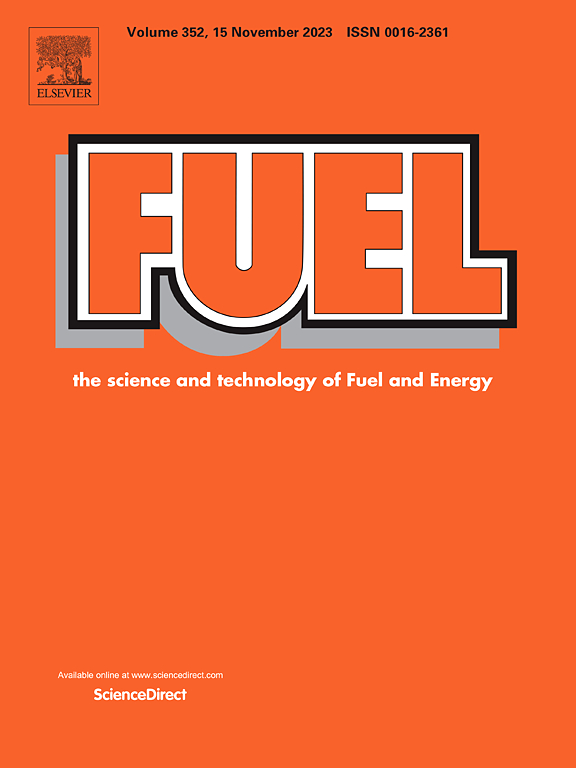模型凝析油对动力学水合物抑制剂抑制甲烷水合物形成的双重影响
IF 6.7
1区 工程技术
Q2 ENERGY & FUELS
引用次数: 0
摘要
天然气是碳中和的清洁能源,但天然气的输送受到天然气水合物管道堵塞的威胁。作为全球天然气储量的重要组成部分,凝析气田的开发伴随着凝析油的开发,但凝析油如何影响水合物的形成以及动力学水合物抑制剂(KHIs)的性能尚不清楚。本研究通过实验研究了模型凝析油(正己烷)对纯水和KHI体系(PVP、Luvicap-EG和Inhibex-501)中水合物形成动力学的影响。结果表明,正己烷促进了纯水中甲烷水合物的形成,但在KHI体系中表现出双重作用,这与KHI的类型和过冷度有关:①正己烷在低过冷度时增强了Luvicap-EG和Inhibex-501的性能,但减弱了PVP;②正己烷对Luvicap-EG和Inhibex-501的作用随着过冷度的增加而由增强变为减弱。结合水合物形态分析,提出了双重效应的机理假说,认为正己烷在气液固界面和体积水相的不同性质,对应不同的水合物形成模式。该研究阐明了凝析油对水合物形成和抑制的复杂影响,为KHIs在凝析气田的成功应用奠定了基础。本文章由计算机程序翻译,如有差异,请以英文原文为准。

Dual effect of model condensate oil on how kinetic hydrate inhibitors (KHIs) inhibit methane hydrate formation
Natural gas is clean energy for carbon neutrality, while its transportation is threatened by gas hydrate blockage in pipelines. As a vital component of global gas reserve, the development of gas condensate fields is accompanied by condensate oil, however, how condensate oil affects hydrate formation and the performance of kinetic hydrate inhibitors (KHIs) remains unclear. This study experimentally investigated the impact of model condensate oil (n-hexane) on hydrate formation kinetics in both pure water and KHI systems (PVP, Luvicap-EG, and Inhibex-501). Results demonstrated that n-hexane promoted methane hydrate formation in pure water, but displayed the dual effect in KHI systems, which was related to KHI’s type and subcooling: (i) n-hexane enhanced the performance of Luvicap-EG and Inhibex-501 at low subcooling, but weakened PVP, (ii) the role of n-hexane on Luvicap-EG and Inhibex-501 shifted from enhancement to weakening when increasing subcooling. Furthermore, combined with hydrate morphology analysis, a mechanism hypothesis was proposed that the dual effect originated from the various characters of n-hexane at gas–liquid-solid interface and bulk water phase, corresponding to different modes of hydrate formation. This study elucidates the complex influence of condensate oil on hydrate formation and inhibition, facilitating successful application of KHIs in gas condensate fields.
求助全文
通过发布文献求助,成功后即可免费获取论文全文。
去求助
来源期刊

Fuel
工程技术-工程:化工
CiteScore
12.80
自引率
20.30%
发文量
3506
审稿时长
64 days
期刊介绍:
The exploration of energy sources remains a critical matter of study. For the past nine decades, fuel has consistently held the forefront in primary research efforts within the field of energy science. This area of investigation encompasses a wide range of subjects, with a particular emphasis on emerging concerns like environmental factors and pollution.
 求助内容:
求助内容: 应助结果提醒方式:
应助结果提醒方式:


